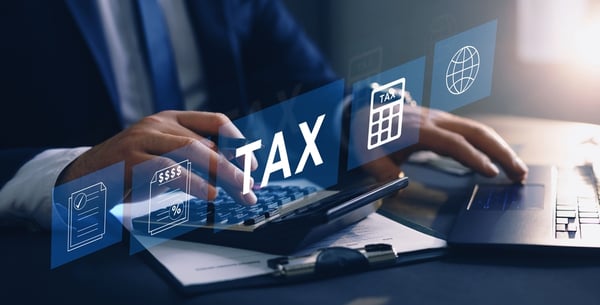Disclosure of Interests to Align Hong Kong Listed Corporations with International Standards
In line with international corporate governing and reporting standards, Part XV of the Securities and Futures Ordinance (Cap. 571) mandates disclosure of interest by corporate insiders to The Hong Kong Stock Exchange (“HKEX”). Substantial Shareholders, Directors and Chief Executives (together referred to as corporate insiders) of a listed corporation on the HKEX are mandated to disclose their interests and holding of securities. The disclosure of interest (DI) by corporate insiders should also include information that can affect perceptions of the value of listed corporations.
The main objective of the disclosure regime is to provide investors in listed corporations with relevant and complete information to make informed investment decisions. Through this regime, investors will be able to identify the individuals who control, or are in a position to control, interests in shares in listed corporations (ListCo) as well as those who may benefit from transaction involving associated corporations of listed corporations.
Whom Does the Disclosure Obligations Apply to?
The Hong Kong Securities and Finance Commission (SFC) has provided guidelines for corporate insiders and listed issuers to help them comply with the disclosure regime. This includes details and definitions of who fall under the regime, as well as guidelines on what kind of event needs to be reported.
Disclosure obligations are applicable to the below persons/entities of the ListCo, as well as for the ListCo itself:
- Substantial Shareholders: Defined as individuals or corporations who are interested in 5% or more of any class of voting shares in a listed corporation. The disclosure of interest in voting shares covers:
- Shares that carry voting rights
- Unissued shares which, if issued, would have such rights and
- Include “ordinary shares”, “A shares”, “B shares” and “H shares”.
- Directors: Defined as any persons who are occupying the position of a director by whatever name called; and Shadow directors. They are obligated to disclose their interests in the ListCo and Associated Corporations that include:
- any shares (not just voting shares) and
- debentures
- Chief Executive: Defined as any person responsible for the conduct of the business of the corporation under the immediate authority of the Board. They have similar disclosure obligations as Directors.
What are the Interests to be Disclosed?
The disclosure regime requires corporate insiders to disclose interests and derivative interests in shares as defined under the following main categories:
- Owned Interests: Any interests that the corporate insiders directly own
- Deemed Interests: The calculation of the total number of shares in which corporate insiders have an interest must include any interests, including derivative interests, in shares of the same listed corporation that are held by their family, corporate and trusts: These include:
- Corporate insider’s spouse and child under the age of 18 (family interests)
- Through a controlled corporation corporate interests)
- A trust, for which corporate insider is a trustee
- A discretionary trust, for which a corporate insider is the founder (that can influence the trustee to exercise his discretion)
- A trust (other than a discretionary trust) for which the corporate insider is a beneficiary
- Persons who have agreed to act in concert to acquire interests in the listed corporation, if corporate insider is a party to the concert party agreement
- Deemed Interests through a Controlled Corporation: A controlled corporation is defined as one in which corporate insiders are entitled to exercise or control the exercise of one-third or more of the voting power at general meetings; or If the corporation or its directors are accustomed to act in accordance with the corporate insider’s instructions
- Interests Arising from Equity Derivatives and Underlying Shares: Interests arising from equity derivatives and underlying shares is required to ensure that all interests and short positions in shares of a listed corporation are disclosed appropriately. These include Contracts or financial instruments that give corporate insiders rights, options or interests in the underlying shares, physically and/or cash settled interests and lastly, listed & Unlisted interests
What are the Reporting Timings for Disclosures?
The duty of disclosure arises whenever any relevant event changing the interest of a corporate insider occurs. The relevant event could also occur due to the actions of others. Corporate insiders need to be vigilant to ensure they can file their disclosures in a timely manner. They need to be aware that the disclosures are to be reported within 3 business days of the occurrence of a relevant event and within 10 business days for initial notification. In addition, they should keep in mind that there are different reporting time frames for buying and selling shares. A change in nature of interest in deemed to have occurred when there has been a change in title to voting shares, change of legal or equitable interests in voting shares and when a change of interest in underlying shares of equity derivatives occurs.
Substantial shareholders are obligated to make disclosures in a variety of instances. These include (a) when they come to have or cease to have interests of 5% or more of any class of voting shares, (b) come to have or cease to have short position of 1% or more for an existing notifiable interest, (c) subsequent change in level of holding due to an increase or decrease in holding percentage that results in their interest or short position crossing over a whole percentage number. In addition, substantial shareholders must make disclosures in the event of change in nature of interests, as well as at the time of initial notification upon IPO, when a particular class of shares are being given full voting rights, and when the 5% threshold (for interest in shares) or 1% threshold (for short positions) is reduced.
Directors and Chief Executives have similar requirements as substantial shareholders for their disclosure of interests. These include events where they are granted rights to subscribe for shares or debentures by the ListCo or associated corporation, enter into contract to sell any shares or debentures, assign any right granted by ListCo to subscribe for shares/debentures. In addition, they need to make initial notifications upon appointment as director or chief executive and when a corporation becomes an associated corporation.
The disclosures are to be filed using the electronic filing system namely, Disclosure of Interests Online System (“DION System”). The DI information is listed on the website of the HKEX for investors’ reference. Failure to make a disclosure in accordance with the provisions of Part XV, as well as making a false or misleading material statement can be considered a criminal offence.
Disclosure of Interests for Enhanced Corporate Governance
Listed Issuers are mandated to keep registers of disclosure information of substantial shareholders as well as directors and chief executives and ensure that they maintain a separate register of interests and short positions for these corporate insiders. The Issuers must produce the register of directors’/chief executives’ interests and short positions at AGM for inspection.
With the establishment of a robust disclosure regime, there is increased monitoring of corporate insiders. This ensures that conflicts of interests are appropriately handled. Investors can properly assess the decision making of the management of the ListCo with enhanced transparency. This boosts the corporate governance of the ListCo. Moreover, disclosures provide checks and balances on the corporate insiders, thereby protecting investor interests. All in all, with a strong corporate governance the ListCo can benefit from attracting higher quality of capital, while also lowering compliance costs.






